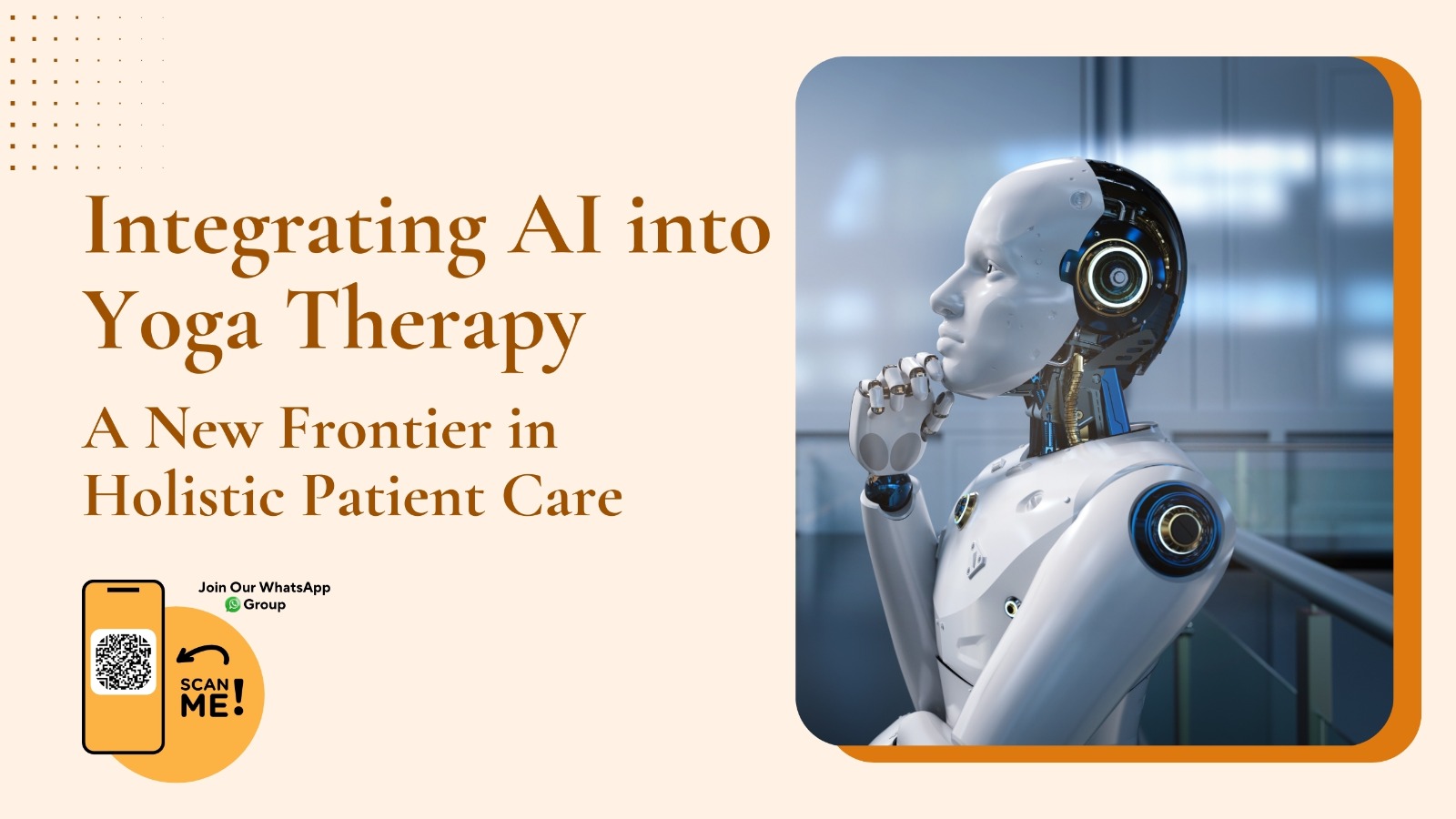Introduction
In the evolving landscape of medicine, a new alliance is forming between two distant fields: artificial intelligence (AI) and yoga therapy. For physicians looking for integrative approaches that go beyond pharmacological management, this offers a novel pathway to optimize outcomes across a range of chronic and lifestyle-related conditions.
Why This Matters to Physicians
As healthcare becomes increasingly personalized and data-driven, AI’s integration into yoga therapy brings clinical relevance to an age-old practice. This convergence uses AI’s capabilities—predictive analytics, real-time monitoring, and remote intervention—to transform yoga therapy into a scalable, measurable, and highly individualized treatment modality.
AI-Powered Enhancements in Yoga Therapy
- Real-Time Physiological Monitoring
AI-enabled wearable devices can now track heart rate variability, respiratory patterns, postural alignment, and movement dynamics during yoga practice. For patients with cardiovascular, musculoskeletal, or respiratory conditions, this allows objective feedback and targeted adjustments—something traditional yoga instruction cannot offer.
- Predictive Analytics for Individualized Interventions
Machine learning models trained on biometric and lifestyle data can now predict response to specific yoga regimens. This means yoga prescriptions can be customized based on clinical history, behavioral patterns, and real-time data—providing a precised-medicine approach to therapeutic yoga.
- Virtual Assistance & Telehealth Expansion
AI-driven virtual assistants can guide patients through personalized yoga sessions remotely, ensuring continuity of care. Especially valuable for underserved populations or mobility-limited individuals, these tools extend therapeutic reach and reduce care disparities.
- Research and Protocol Development
From analyzing clinical datasets to identifying biomarkers and response predictors, AI improves research in yoga therapy. This contributes to evidence-based protocol development and aids physicians in aligning integrative care with clinical guidelines.
Clinical Applications: Where Yoga Meets AI in Practice
Chronic Pain and Mental Health
AI-personalized yoga therapy has shown potential in managing chronic pain, depression, and anxiety—conditions where mind-body integration is critical. Physicians can incorporate AI-guided yoga to pharmacotherapy or cognitive-behavioral therapy.
Cardiovascular and Metabolic Disorders
In cases of hypertension, diabetes, or metabolic syndrome, AI tools can customize yoga sequences that promote parasympathetic activation and improve compliance, while monitoring physiological parameters for safety.
Rehabilitation and Geriatric Care
Patients undergoing post-surgical or neurorehabilitation benefit from supervised remote sessions, where AI takes care posture safety and progressive adaptation. This is particularly important for geriatric patients managing frailty or balance deficits.
Ethical and Professional Considerations
For clinicians, adopting AI-integrated yoga therapy requires surveillance about:
Privacy & Data Security: Handling biometric and behavioral data demands strict and informed consent and data protection protocols.
Equity in Access: AI platforms must be inclusive, with careful attention to algorithmic biases and accessibility challenges.
Transparency & Autonomy: Patients must understand the extent and limits of AI recommendations and retain control over therapeutic choices.
Conclusion: A Call for Integrative Clinical Innovation
AI-infused yoga therapy is more than a technological novelty—it is an emerging clinical tool that aligns with the core principles of holistic medicine. For physicians committed to personal care, this integrative approach offers a bridge between ancient wisdom and modern science.
As AI continues to redefine healthcare delivery, welcoming its potential within yoga therapy can enhance patient engagement, optimize outcomes, and open new approach in preventive and rehabilitative medicine.
References
Adapted from: Sinha N, Sinha RK. Harnessing the potential of artificial intelligence in yoga therapy. Int J Yoga 2024;17:242-5.


